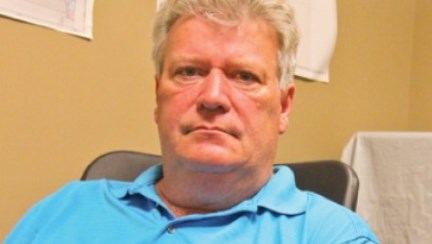A former head of an RCMP crime unit has testified that police were considered to be “puppets” of former Minister of Public Safety and Solicitor General Rich Coleman, in the fight against organized crime at licensed B.C. casinos.
Fred Pinnock, former officer-in-charge of the disbanded RCMP Integrated Illegal Gaming Enforcement Team (IIGET), provided testimony to the Commission of Inquiry into Money Laundering in B.C Thursday based on his recollection of conversations he had in 2009 with then recently-elected MLAs Kash Heed and Naomi Yamamoto.
Pinnock told the commission that the two former BC Liberal cabinet ministers described their colleague Coleman as being indifferent to stopping organized criminal activity in casinos.
In November 2009, Pinnock had an informal meeting with Heed, who had just replaced Coleman as the Minister of Public Safety and Solicitor General that June. Pinnock said he had a friendly relationship with Heed, as they were both recently retired police officers from the Lower Mainland. Pinnock said he raised concerns to Heed about organized crime taking over the casinos.
“He (Heed) said to me, in effect, ‘That is what’s going on, Fred, but I can’t say that publicly; you know it’s all about the money,’” Pinnock told Commissioner Austin Cullen under oath.
“He did refer to Mr. Coleman as being largely responsible for this, as well as senior Mounties, who were complicit,” said Pinnock.
“The context was that it was a game being played by senior police officers who were, I think the term he used was, ‘puppets for Coleman,’” he added.
Pinnock said he never took notes of that meeting, but recorded Heed in 2018 stating much of the same. Those recordings were submitted to the Cullen Commission, he said.
Pinnock had retired from IIGET in December 2007 and subsequently began dating Yamamoto, who is now his wife. Pinnock said he had told Yamamoto about various concerns about law enforcement gaps at casinos. He told the commission he suggested Yamamoto speak to Coleman in summer of 2009 about these concerns, which she did.
“She described his reaction as ‘brutal, dismissive and embarrassing,’” said Pinnock, who had become a whistleblower when he went to the media with his concerns in 2009 and, more recently, to Global News before the inquiry.
Glacier Media has reached out to Coleman, Heed and Yamamoto for comment.
Pinnock told the commission that his unit was underfunded in the over two years he was head of IIGET, which was shut down by Coleman in April 2009, following an internal RCMP review deemed it ineffective.
“I didn’t think IIGET was of particular interest in the hierarchy of major crime units,” said Pinnock.
“I detected a significant enforcement gap as a result of a lack of policing presence in gaming facilities,” he said.
The commission has already heard testimony from present and former casino investigators that paint a picture of systemic failures to regulate gaming in B.C., particularly since 2004. What’s unclear is whether these apparent failures were purposeful, in any way, in order to maintain gaming revenue streams for political purposes while at the expense of public safety.
Pinnock said in 2007 he drafted a business case plan to expand his unit’s mandate, in order to have a greater police presence in licensed venues, as up until then the unit was mostly dealing with low- to mid-level illicit activity, such as unsanctioned prize draws and gaming houses.
Pinnock also claimed there was a poor relationship between IIGET and the Gaming Policy and Enforcement Branch (GPEB), the province’s regulator of gaming activity. He said it was his feeling that IIGET was to stay out of casinos and “tensions began to escalate between our units.”
Pinnock repeated how when he began with IIGET it was his perception and “feeling” that his unit was not to enforce the Gaming Control Act at licensed facilities.
However, commission counsel Patrick McGowan recited numerous paper documents that showed IIGET as having a mandate to police the facilities, which the commission has been previously told were rife with organized criminal activity.
As such, Pinnock was questioned numerous times about his own personal inaction during his time with IIGET.
He conceded he never once set foot inside B.C.’s largest casino, Richmond’s River Rock Casino and Resort, during his tenure.
“In retrospect it was your unit that was able to enforce, yes?” asked McGowan of Pinnock.
“Well, we’ve seen it [mandate] written on documents, but in practice we were not expected to have any presence in those locations,” said Pinnock.
“To properly target organized criminal activity you need sufficient manpower,” said Pinnock.
However, Pinnock also conceded he never once went to his superiors directly with his concerns, other than the business case proposal as a way of broadening the unit’s de facto mandate.
McGowan also pressed Pinnock on why there was no “integration” with IIGET and GPEB.
Pinnock said upon being hired he assumed this would be the case, but “It ended up to be an entirely different picture.”
McGowan also raised a lack of direct communication from Pinnock to those with higher authority to remedy his concerns, both before and after his retirement.
Asked if he had any communications with senior RCMP officials to query inaction or encourage action on their part, Pinnock said he did not. Nor did he communicate his concerns to anyone in government after his conversation with Heed.
BCLC lawyer Bill Smart suggested Pinnock knew nothing of Coleman’s efforts to address the problem, to which Pinnock agreed he did not.
Pinnock later reiterated he did attempt to speak to Coleman once, at a BC Liberal fundraiser.
“I extended my hand to his hand, to shake it. He’s a big fella. He tried to crush my hand. I took that to be a message to me,” said Pinnock.


